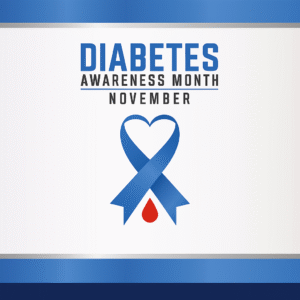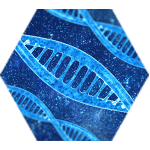Integrative Endocrinology – Homormes, Metabolism and Environmental Interactions
Hormonal health is more than internal chemistry—it’s a reflection of how your body interacts with its surroundings internal and external. Integrative endocrinology explores the dynamic relationship between hormones, gut health, metabolism, and environmental exposures, offering a root cause hormone therapy approach that’s both personalized and preventative. We look at the best solution for you with Naturopathic and conventional options.

🧠 What Is Integrative Endocrinology at SIEM?
This systems-based model blends conventional endocrinology with Naturopathic medicine to address:
- Hormone imbalance and impact of treatments including bio-identical hormones on your metabolism.
- Gut and nutritional processing efficiencies and effectiveness
- Microbiome and hormone receptors: “If you’ve felt burned out, bloated, or foggy lately, your microbiome might be signaling trouble.”
- Lifestyle impacts and management to reduce inflammation, negative health burdens, and support healthy processes
- Blood sugar regulation and personalized nutrition
- Chronic stress management due to impacts on cortisol, adrenals and other hormones levels.
- Investigate how environmental factors, such as endocrine-disrupting chemicals (EDCs), air quality, and dietary toxins, influence hormone production and metabolic resilience.
- Determine impact of brain and central nervous system health.
⚖️ Hormones in a Changing Environment
Hormones like cortisol, thyroid hormones, adrenals and insulin are sensitive to external stressors but significantly impact energy production. Environmental impacts include:
- EDCs mimicking or blocking hormone receptors (e.g., BPA, phthalates, PFAS)
- Airborne pollutants triggering oxidative stress and adrenal dysfunction
- Heavy metals interfering with thyroid hormone synthesis
These exposures can alter hormone signaling, disrupt circadian rhythms, and contribute to chronic conditions like fatigue, weight gain, and mood instability.
🦠 Gut Health, Microbiome & Environmental Stress
Your gut microbiome is a frontline defense against environmental toxins. When compromised, it affects:
- Estrogen detox pathways
- Thyroid and adrenal support
- Blood sugar regulation
Stool testing reveals microbial diversity and inflammation markers, helping clinicians tailor interventions that restore gut resilience and support hormone balance.
🔥 Metabolism & Environmental Load
Metabolic health is shaped by both internal function and external burden. Environmental stressors can:
- Disrupt insulin sensitivity and glucose metabolism
- Alter cortisol and stress response patterns
- Impair mitochondrial function and energy output
Wearable health tech and nutrigenomics help track how your body responds to these stressors in real time, guiding personalized metabolic health strategies.
🧪 Tools for Personalized Hormone Care
| Tool | Function |
|---|---|
| Hormone Testing | Maps cortisol, estrogen, and progesterone as well as other hormones rhythms |
| Stool Test | Assesses microbiome health and environmental impact |
| Wearable Tech | Tracks and can manage sleep, glucose, and circadian alignment |
| Nutrigenomics | Aligns diet with detox and hormone-related gene traits |
🌎 Why Environmental Awareness Matters
Modern life exposes us to thousands of synthetic compounds daily. By integrating environmental insights into hormone care, we can:
- Reduce reliance on synthetic hormone therapies
- Support natural detox pathways
- Improve long-term outcomes with fewer side effects
Integrative endocrinology empowers patients to reclaim balance—not just through biology, but through conscious living and environmental regulation.

An Integrative Endocrinology Approach Hormones, Metabolism and environmental impacts allows us to truly optimize your hormones and metabolism that can lead to better health.
Common Conditions and Indications of Hormones problems including Thyroid Function and Adrenal Function include:
Hypothyroidism – Thyroid does not produce enough hormones – symptoms include:
Weight Gain
Lack of Energy
Depression
Frequently Feeling Cold
Hair Loss/Dry Brittle Hair
Brittle Nails
Hyperthyroidism – Thyroid produces too many hormones – symptoms include:
Weight Loss
Anxiety
Tremors
sweatiness
Diarrhea
Adrenal Diseases other Hormone Dysfunctions include:
- Hormonal Imbalance
- Addisons
- Adrenal Hypertrophy
- Type 2 Diabetes
- Cushing Syndrome
- Primary Aldosteronism
- Fatigue
- Brain Fog
- Growth
- Don’t feel like yourself
- Weight Gain
- Hot Flashes/ Night Sweats
- Bone Loss
- Insomnia
- Mood Swings
- Muscle Weakness/ Loss
- Anxiety/ Irritability/ Nervousness
Blog Posts:
Cortisol Production and Seasonal Changes: What You Need to Know – S.I.E.M. (siemedical.com)
Hashimoto’s Thyroiditis and Gluten | Should I Cut It Out? – S.I.E.M.
How to Lose Weight with Hashimoto’s – S.I.E.M.
Endocrine Disruptors and Natural Alternatives to Hormone Therapy
HOW WE HELP
A Naturopathic, root cause and integrative endocrinology approach allows us to identify other impacts to your hormones and body’s health. We treat the Whole You not just one body system.
I never understood how the body’s systems worked together, especially with Hormones. This approach has helped me return to normal and Thrive again.– S.I.E.Medical Patient






